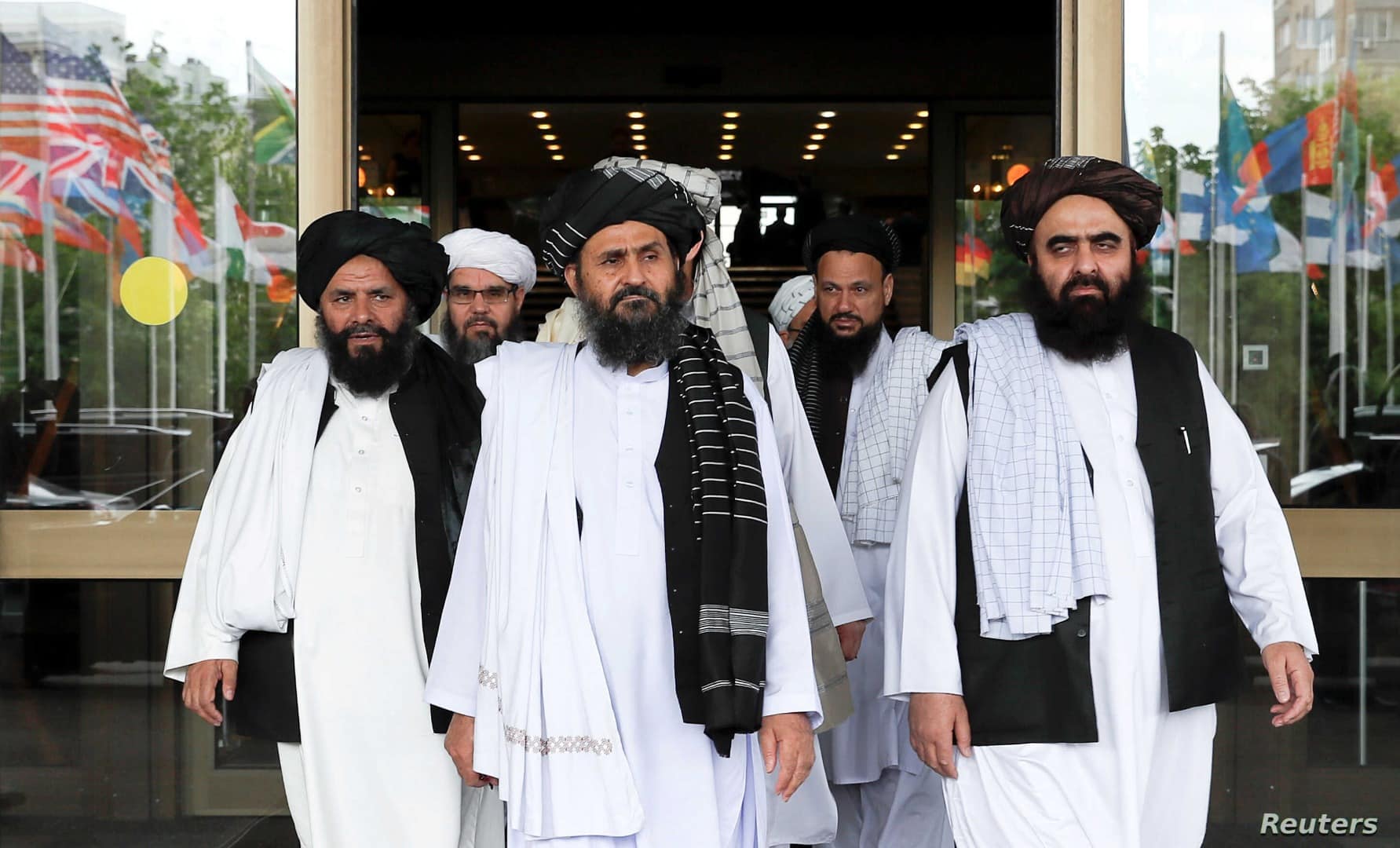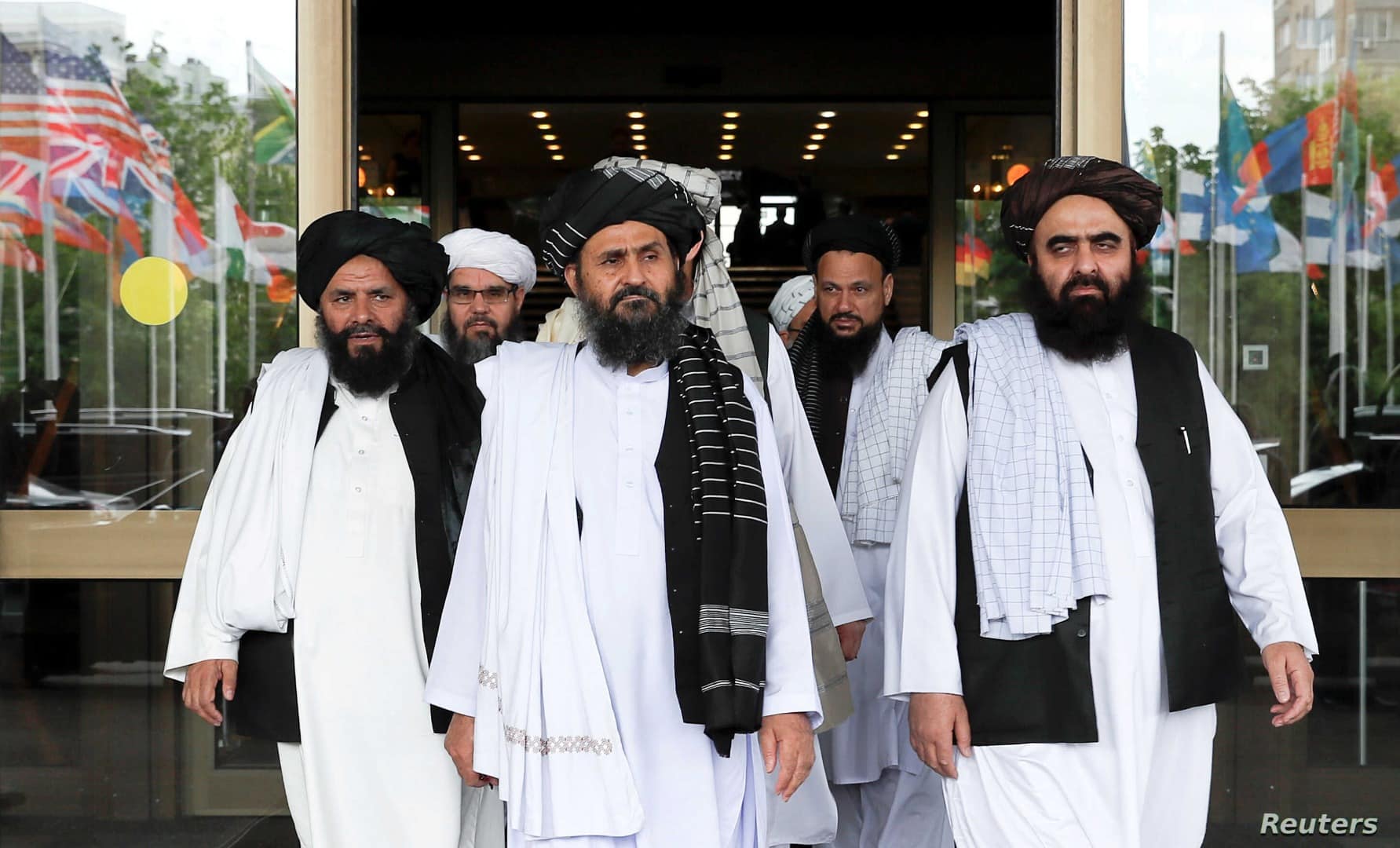President Joe Biden’s departure from Afghanistan was the right thing to do even if it was handled disastrously. And he now has the opportunity to do some other “right things” that are in some ways related to the recently concluded fiasco in Central Asia in that the White House for too long has believed that it has the authority to intervene globally given its often cited authority as both “exceptional” and “Leader of the Free World.” One thinks immediate of the sanctions regime which is used repeatedly to punish foreign governments that do not conform to American and Western European norms on issues like homosexuality, “choice,” and even immigration. The current edition of sanctions, naming individuals, businesses and government entities, runs to hundreds of pages. It is updated and added to regularly by the Treasury Department’s Office of Foreign Assets Control.
It has repeatedly been demonstrated that sanctions do not accomplish anything and they in fact disproportionately punish the most vulnerable people in the country being targeted, depriving them of food and medicine while their leaders have plenty of both. Sanctions do not compel countries to change their foreign and domestic policies and, in fact, frequently generate a measure of sympathy, producing popular support for regimes that are perceived as being unfairly attacked by the United States. Many argue that the authoritarian regime in Cuba has largely survived because many Cubans despise the extensive US imposed sanctions on their country.
So one longs to see an end to sanctions and an increase in face-to-face discussions between representatives of foreign countries to resolve problems without killing people and crippling economies. But sanctions are only one element in America’s ongoing war against the world, which admittedly is going badly. Whenever one gets into discussions about the decline of America’s ability to positively influence developments around the world a number of issues tend to surface. Some critics who look beyond what is being reported in the media or parroted by government spokesmen recognize that it is actually the policies being pursued by the White House and Congress that are out of sync with what is actually happening in Asia, Africa and Latin America, being more driven by often partisan establishment-acceptable narratives than by genuine interests.
The problem starts at the top with certain perceptions about how the United States ought to deal with the world but it is exacerbated at the working level where actual contact with foreigners takes place. The perceptions themselves have unfortunately been shaped by the media and by neocon or neoliberal ideologues to include Condoleezza Rice, Madeleine Albright, Hillary Clinton, Mike Pompeo, John Bolton and the current incumbent Tony Blinken as Secretaries of State and National Security Advisers.
But there is a more serious problem in that many in Washington as well as in the media and among the public do not understand why we should have ambassadors and foreign embassies at all. Ambassadors have existed as interlocutors between communities since ancient Sumer formed the first local governments in Mesopotamia but they became institutionalized and protected in ancient Greece, where hoplite warfare required total mobilization and produced a huge number of fatalities because it was not possible to run away in armor. War was generally speaking catastrophic in the ancient world, with entire defeated populations made into slaves and fields and crops devastated in warfare to induce starvation. Ambassadors were from the beginning granted a special immunity which enabled them to talk to enemy spokesmen to attempt to resolve contentious issues without resort to arms.
Beyond that, in the Middle Ages and ever since, Ambassadors have been sent to reside in foreign capitals to provide some measure of protection for traveling citizens and also to defend other perceived national interests, including trade. Ambassadors are not soldiers, nor are they necessarily the parties of government that ultimately make decisions on what to do when dealing with a foreign nation. They are there to provide a mechanism for exchanging views to create a dialogue while at the same time working with foreign governments to avoid conflict, whether over trade or politics. They should be bridge-builders who explain how American politics function, how the American government works, and at the same time educate Americans on how the country they are based in sees the United States.
By all these metrics, the US diplomatic effort has been a failure and, at the end of the day, the United States taxpayer spends astonishing sums of money to support its global representational and security structures that provide little in return, rarely experiencing any notable successes and letting the reputation of the US decline due to sheer ineptness. But, beyond that, the worst part is the perception that if the White House really dislikes a nation the best way to deal with it is not at all so they opt to close the Embassy and cut off all face-to-face contact.
The United States for many years had no Embassy in Cuba, which only reopened in 2015. It has no Embassy in Iran or in Syria, both countries that the US should be talking to as there is concern over war possibly breaking out in that region, largely due to hostility coming both from Jerusalem and Washington. And the current situation is Afghanistan suggests that the mistake of having no representation will be replicated in dealings with the new government in Afghanistan.
A Taliban spokesman has opened the door to a positive relationship with Washington, based on diplomacy and trade without a military occupation, saying “America should have only a diplomatic presence in Kabul. We have communication channels with them and we expect them to reopen their embassy in Kabul and we also want to have trade relations with them.” But not so fast! Washington is saying something else. Presidential chief of staff Ron Klain was skeptical about recognition for a Taliban government, saying: “I don’t think anytime soon. I don’t know if we will ever recognize their government.” He added that “What we know is that the Taliban says they’re going to form a government, we’ll see what that looks like, we’ll see what kind of credentials they present. More importantly, we’ll see what their conduct is. Do they honor their commitments, to allow freedom of travel? Do they respect human rights?”
Other government sources have revealed that the US has used its leverage over world finance to freeze billions of dollars in Afghan government reserves while also blocking possible International Monetary Fund loans. Secretary of State Antony Blinken has admitted that Washington is using its power over the monetary system to put pressure on the Taliban.
So, the United States is concerned over human rights and freedom to travel in a foreign country, issues that in no way relate to actual US interests, and it is willing to forego direct dialogue with a potentially dangerous adversary just to demonstrate its displeasure. It makes one wonder what kind of idiots are running around loose in Washington. Indeed, stealing Afghanistan’s limited financial resources, which will guarantee an economic crisis for a country which is already miserably poor, while also cutting off all means to direct dialogue to resolves disagreements is a recipe that encourages bad behavior by whatever government manages to take shape in Kabul over the next several weeks. Biden and company should pay attention to the old Sicilian saying, “Keep your friends close, but your enemies even closer!” Or as Winston Churchill put it, “Jaw, jaw, jaw is better than war, war, war.”
For what it’s worth, a group of European Union countries is committed to establishing a joint mission to Kabul which will de facto operate like an Embassy. Its engagement with the new government, which could include foreign aid for the harsh winter that soon will be coming up, will depend on the degree to which the government sends positive signals. Those signals will include respect for the rights of all the Afghan people, media freedom and, most critical, preventing the establishment of any terrorist groups in the country. That is the way to go, a stick and a carrot. Reopening the US Embassy in Kabul to establish a similar dialogue should be a top priority.
Reprinted with permission from Unz Review.


